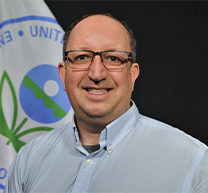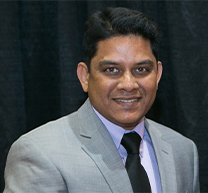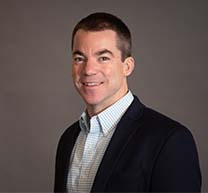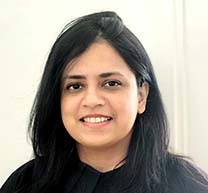GEC auf dem eSummit 2024
FÜHRUNG IM BEREICH DER NACHHALTIGKEIT: KRITERIEN FÜR DAS EPEAT-UMWELTZEICHEN DER NÄCHSTEN GENERATION UND PERSPEKTIVEN DER STAKEHOLDER IN DER LIEFERKETTE
Mittwoch - 23. Oktober - 14:00 - 15:45 Uhr CT
Nehmen Sie mit dem Global Electronics Council (GEC) am eSustainability Summit an einer Sondersitzung teil, in der wir die nächste Generation der EPEAT®-Umweltzeichenkriterien vorstellen werden. Diese neuen Kriterien, die 2025 eingeführt werden, werden die Markterwartungen für die Nachhaltigkeit von IKT-Produkten in vier Schwerpunktbereichen festlegen: Klimawandel, Kreislaufwirtschaft, Chemikalien und verantwortungsvolle Lieferketten.
Diese Veranstaltung ist eine einmalige Gelegenheit für Fachleute aus der Branche, einen frühen Einblick in die aktualisierten Kriterien zu erhalten und direkt von Interessenvertretern aus der gesamten IKT-Lieferkette zu hören. Unabhängig davon, ob Sie Einkäufer, Lieferant oder Recycler sind, werden Sie erfahren, wie sich diese Änderungen auf Ihre Nachhaltigkeitsziele und betrieblichen Praktiken auswirken werden.
Ausgewählte Redner

Chris Newman
Umweltwissenschaftler, EPA

Puneet Shrivastava
Leitender Ingenieur, Dell
David Hirschler
Verantwortlicher für Nachhaltigkeit, ERI

Bob Mitchell
Geschäftsführender Direktor, Global Electronics Council

Shahana Althaf, PhD
Agenda der Veranstaltung
23. Oktober 2024
2:00 - 2:10 Einführung in GEC & EPEAT
2:10 - 2:40 Überblick über die aktualisierten EPEAT-Kriterien
2:40 - 3:20 Perspektiven der Interessenvertreter für die nächste Generation der EPEAT-Umweltzeichen-Kriterien
3:20 - 3:30 Fragen und Antworten & Nachbereitung
Diese Sitzung wird wertvolle Einblicke in die Zukunft der Nachhaltigkeit von IKT-Produkten bieten, wobei der Schwerpunkt auf den Kriterien der Kreislaufwirtschaft liegt. Führende Vertreter der Branche werden ihre Sichtweise zu den Herausforderungen und Chancen der neuen Normen darlegen.
Seien Sie der Zeit voraus, indem Sie mit uns erkunden, wie die nächste Generation der EPEAT-Kriterien die nachhaltige Technologielandschaft in den kommenden Jahren prägen wird.
Kontaktieren Sie uns unter criteria@gec.org für Fragen oder weitere Informationen.
Mehr über SERI
Die Aufgabe von SERI besteht darin, all diese unterschiedlichen Teile zusammenzubringen, um einen echten Wandel herbeizuführen. Diese einzigartige Organisation ist die einzige gemeinnützige Organisation der Welt, die sich ausschließlich auf die Minimierung der Umwelt- und Gesundheitsrisiken konzentriert, die von gebrauchter und ausgedienter Elektronik ausgehen, und die gleichzeitig den sozialen und wirtschaftlichen Wert dieser Geräte maximiert. SERI möchte, dass jeder über Elektronik anders denkt, verantwortungsbewusster handelt und Entscheidungen im Umgang mit unserer Elektronik unter dem Leitstern der Nachhaltigkeit trifft. Denn wenn wir das tun, schützen wir Menschen und Umwelt und sorgen gleichzeitig dafür, dass unsere Elektronik Gutes bewirkt.
Mehr über den Global Electronics Council
Der Global Electronics Council (GEC) beschleunigt den systemischen Wandel, um bis 2050 eine zu 100 % nachhaltige Elektronikindustrie zu schaffen.
- Dies bedeutet Netto-Null-Emissionen, Null-Abfall, Wasserneutralität und minimale nachteilige Auswirkungen auf die Umwelt und die Menschenrechte während des gesamten Lebenszyklus von Produkten und Dienstleistungen.
- Als Verfechter des EPEAT-Umweltzeichens setzen wir den weltweiten Standard für nachhaltige Elektronik.
- Durch unsere weltweit führende Akkreditierung, unser Engagement und unsere Führungsrolle unterstützen wir Hersteller und Käufer von Elektronikprodukten bei der Erreichung ihrer Nachhaltigkeitsziele.
- Wir gestalten die Beziehung der Welt zu Technologie und natürlichen Ressourcen neu und ermöglichen die Umwandlung von Elektronik von einer eskalierenden ökologischen und sozialen Herausforderung in eine befähigende, nachhaltige Lösung.
Unsere Arbeit beschleunigt den Wandel in vier wichtigen Aktionsbereichen:
- Klimamaßnahmen: Lenkung des Marktes zur Verringerung der Treibhausgasemissionen bei der Herstellung, den Lieferketten und der Verwendung von Elektronik.
- Kreislaufwirtschaft: Sicherstellen, dass die Hersteller von Elektronikprodukten ihre Produkte und Verpackungen so gestalten, dass sie langlebig, wiederverwendbar und recycelbar sind, mit dem Ziel, jeglichen Abfall in der Branche zu vermeiden.
- Besorgniserregende Chemikalien: Helfen Sie mit, die Verwendung von giftigen Chemikalien, die für die menschliche Gesundheit und die Umwelt gefährlich sind, zu unterbinden.
- Verantwortungsvolle Lieferketten: Gewährleistung einer verantwortungsvollen Materialbeschaffung, fairer Arbeitspraktiken und der Gesundheit und Sicherheit der Arbeitnehmer in der Elektronik-Lieferkette.

David Hirschler
Verantwortlicher für Nachhaltigkeit, ERI
David Hirschler ist Chief Sustainability Officer bei ERI, dem landesweit führenden Recycler von Elektroschrott. David Hirschler ist verantwortlich für die internen und externen Nachhaltigkeits- und Kreislaufwirtschaftsinitiativen von ERI sowie für die Gesetzgebungsaufgaben von ERI, die das gesamte Spektrum der Herstellerverantwortung und der Datenschutzbestimmungen abdecken. Darüber hinaus ist David Präsident des Vorstands von FABSCRAP, einer gemeinnützigen Organisation, die sich auf das Recycling und die Wiederverwendung von gewerblichen Textilabfällen konzentriert. David ist seit mehr als 20 Jahren im Recyclingbereich tätig und hat einen Master-Abschluss in Stadt- und Umweltpolitik und -planung der Tufts University.

Chris Newman
Umweltwissenschaftler, EPA
Chris Newman ist Umweltwissenschaftler bei der United States Environmental Protection Agency. Er beschäftigt sich seit über 20 Jahren mit nachhaltigem Materialmanagement und der Entsorgung von Elektronikgeräten am Ende ihrer Lebensdauer. Er hat mit Mitarbeitern der staatlichen Umweltbehörden im oberen Mittelwesten zusammengearbeitet, um die Entwicklung und Verwaltung ihrer staatlichen E-Müll-Programme zu unterstützen. Chris war an der Entwicklung von Kriterien für mehrere nachhaltige Beschaffungsstandards für Elektronikprodukte beteiligt und arbeitete mit Bundesinteressenvertretern an der Entwicklung von Ressourcen für das End-of-Life-Management von Elektronikgeräten, Programmen zur Verbesserung der Verwaltung von Elektronikgeräten und anderen nachhaltigen Verfahren. Im Zuge des technologischen Fortschritts hat er sich auch mit Fragen zu Lithiumbatterien und Photovoltaik sowie mit kritischen Mineralien befasst. Chris ist außerdem Ko-Vorsitzender des Lenkungsausschusses für das International E-waste Management Network, einer Partnerschaft zwischen dem US-EPA und dem taiwanesischen Umweltministerium, die zur Verbesserung der Elektroschrottbewirtschaftung in Partnerländern auf der ganzen Welt beiträgt.

Puneet Shrivastava
Leitender Ingenieur, Dell
Puneet ist der Bereichsleiter für Ökodesign und eingeschränkte Materialien im Compliance-Architektur-Team bei Dell. Mit mehr als 16 Jahren Erfahrung im Produkt-Compliance-Team von Dell hat Puneet mehrere Compliance-Programme für Ökodesign, Materialien und Produktrücknahme geleitet. Er spielte eine entscheidende Rolle bei der Einführung des branchenweit ersten zertifizierten Programms für recycelte Kunststoffe und war Mitglied des technischen Komitees, das an der grundlegenden Überarbeitung des R2V3-Standards arbeitete. Puneet sorgte auch dafür, dass alle ITAD-Partner von Dell nach dem R2V3-Standard zertifiziert wurden. Er war federführend bei der Umstellung auf die Digitalisierung der Prozesse zur Materialkonformitätserklärung, wodurch die Effizienz und Transparenz des Genehmigungsprozesses für Teile erheblich gesteigert wurde.
In den letzten zwei Jahren war Puneet ein aktives Mitglied des GEC-Fachausschusses für nachhaltige Ressourcennutzung und bedenkliche Chemikalien, wo er an der bevorstehenden Überarbeitung des Standards arbeitete und Dell vertrat. Derzeit arbeitet er mit verschiedenen Interessengruppen innerhalb und außerhalb von Dell zusammen, um sicherzustellen, dass die Nachhaltigkeit von Produkten weiterhin höchste Priorität genießt.

Shahana Althaf, PhD
Wissenschaftlicher Mitarbeiter, Entwicklung von Nachhaltigkeitskriterien
Als Research Scientist, Sustainability Criteria Development, erforscht Dr. Shahana Althaf die ökologischen und sozialen Auswirkungen von Elektronikprodukten über den gesamten Lebenszyklus, um Umweltleistungskennzahlen und Instrumente zur Quantifizierung der Vorteile nachhaltiger Technologieprodukte zu entwickeln. Sie führt auch Marktanalysen von Technologien durch, um den Fahrplan für die Ausweitung der Wirkung von GEC zu entwickeln.
Dr. Althaf verfügt über mehr als neun Jahre Erfahrung in der Nachhaltigkeitsforschung, sowohl in akademischen als auch in Unternehmensprojekten. Bevor sie zu GEC kam, arbeitete sie als Nachhaltigkeitswissenschaftlerin bei einem Beratungsunternehmen für die Bilanzierung von Treibhausgasen, wo sie über zwei Jahre lang Projekte für Kunden aus der Elektronik- und Textilbranche leitete. Sie war als Einzelauftragnehmerin für die UN-Agentur UNITAR tätig, um Forschungen über die Bewirtschaftung von Elektroschrott in Nord- und Südamerika durchzuführen, und ist eine der Autoren des UN-Berichts Global E-waste Monitor 2024.
Dr. Althaf hat einen Doktortitel in Nachhaltigkeit und einen Master-Abschluss in Telekommunikationstechnik vom Rochester Institute of Technology, USA. Ihr Bachelor-Abschluss ist in Elektronik und Kommunikationstechnik. Nach ihrer Promotion arbeitete sie über zwei Jahre lang als Post-Doc am Center for Industrial Ecology der Yale University. Während ihrer Zeit als Postdoc in Yale war sie auch Fellow des Global Future Council for Net Zero Transition des Weltwirtschaftsforums. Dr. Althaf hat mehrere hochrangige Zeitschriftenartikel, Buchkapitel und Berichte zum Thema Nachhaltigkeit im Elektroniksektor veröffentlicht. Ihre Forschungsarbeit wurde mit Preisen ausgezeichnet, wie dem The Journal of Industrial Ecology best paper prize - Graedel Prize 2020 und RCR best paper award 2019. Sie ist in Rochester, New York, ansässig.

Bob Mitchell
Geschäftsführender Direktor, Global Electronics Council
Als Chief Executive Officer des Global Electronics Council ist Bob für die Führung und strategische Aufsicht der Organisation verantwortlich, um deren Vision und Mission zu erfüllen. Er verfügt über einen fundierten Hintergrund in den Bereichen Wirtschaft und Menschenrechte, ökologische Nachhaltigkeit, Non-Profit-Management sowie unternehmerische Nachhaltigkeit und Programme.
Als ehemaliger Vizepräsident für Menschenrechte und Umwelt bei der Responsible Business Alliance (RBA) leitete er die Strategieentwicklung und Umsetzung von Programmen für verantwortungsbewusstes Geschäftsgebaren in einem branchenübergreifenden Umfeld mit mehreren Interessengruppen. In dieser Funktion war er für die Einführung und den Start bedeutender Bemühungen in Bereichen wie der Sorgfaltspflicht bei Zwangsarbeit, der Dekarbonisierung von Lieferketten, der Kreislaufwirtschaft und der Widerstandsfähigkeit von Lieferketten verantwortlich.
Er ist ein Veteran von Hewlett Packard und Hewlett Packard Enterprise und arbeitet seit über anderthalb Jahrzehnten im Bereich der Nachhaltigkeit. Vor seiner Tätigkeit bei der RBA war er Director, Global Social & Environmental Responsibility bei Hewlett Packard Enterprise und leitete ein Team von Fachleuten, das sich unter anderem mit Menschenrechten, Umweltverantwortung für Produkte, Verantwortung in der Lieferkette und Konfliktmineralien beschäftigte. Bob war auch Mitglied des RBA-Vorstands und des Beirats von Social Accountability International (SAI). Er hat einen MBA-Abschluss von der University of Arizona und einen Bachelor-Abschluss von der University of Virginia.

